
26 minute read
news | the front line
ROAD SAFETY PROJECT FUNDING
A BUSNSW project to improve road safety has been selected as one of 26 initiatives aimed at saving lives and reducing road trauma to share in AUD$5.9 million under Round 5 of the Australian government’s Heavy Vehicle Safety Initiative (HVSI), it’s been announced.
BusNSW executive director Matt Threlkeld says it was very pleasing to have a project selected as part of this important programme aimed at delivering safety benefits to the heavy vehicle industry, other road users and the community.
“The funding and support administered by the National Heavy Vehicle Regulator provides a great opportunity for the bus and coach industry to promote road safety, particularly in regard to heavy vehicles,” Threlkeld said.
“One of the most common hazards in the bus and coach industry arises from on-road safety risks that result from a bus breakdown,” he explained.
“While breakdowns can occur in all motor vehicles, the hazards associated with bus breakdowns – where the vehicle is usually carrying public passengers and often schoolchildren – can be significant,” he added.
“The aim of the project is to address risks by producing practical guidance material for all parties in the supply chain associated with bus breakdowns, specifically bus drivers, operators, maintenance staff, emergency assistance providers and replacement bus drivers.
“While BusNSW will be the lead agency responsible for developing the guidance material, the project will provide regional, cross-jurisdictional and national safety benefits for the industry,” Threlkeld confirmed.
“The guidelines will be developed in close consultation with the Bus Industry Confederation and other state associations, who are members of the Bus Australia Network.
“They will be available to all members, which means they will assist approximately 3,500 bus operators and over 50,000 bus drivers throughout Australia,” he said.
FUNDING BOOST
Deputy Prime Minister and Minister for Infrastructure, Transport and Regional Development Michael McCormack says innovative projects delivering safety benefits to the heavy vehicle industry and other road users would be funded.
“Projects being funded this round target key areas such as developing or testing innovative new technologies, mental health support for drivers, educational

Above:
Deputy Prime Minister and Minister for Infrastructure, Transport and Regional Development Michael McCormack.
Opposite, Below:
McCormack says innovative projects delivering safety benefits to the heavy vehicle industry and other road users would be funded. campaigns and much-needed training and development,” he said.
“This includes funding for the recently launched Healthy Heads in Trucks and Sheds foundation to ramp up their work to improve the mental health of people in the heavy vehicle sector nationwide, from drivers right through to warehouse and distribution centre staff.
“Some of the technology-focused projects include testing
next-generation base tyres and trialling new mobile cameras under the National Safety Camera Network initiative to allow real-time monitoring for critical safety concerns like load limit compliance and driver fatigue.
“Funding will also go to the National Heavy Vehicle Regulator (NHVR) and Transafe WA to deliver targeted educational campaigns, which keep safety front of mind for road users while addressing key issues like how to share the road safely with heavy vehicles.
“The Australian government takes road safety seriously because no family should have to endure the utter devastation road crashes cause.
“That is why it is absolutely vital we continue to invest in critical initiatives that improve road safety to save lives and reduce road trauma, including across our heavy vehicle sector.”
SAFE SYSTEM PRINCIPLES
Assistant Minister for Road Safety and Freight Transport Scott Buchholz says this latest round of funding built on the $17.3 million already provided for 62 grants under the HVSI programme over the past four years.
“We’ve seen some great projects across the country deliver transformative results thanks to HVSI funding and I am proud to see this game-changing program continue,” Buchholz said.
“Finding innovative ways to make safety front of mind for road users is key to supporting the Safe System principles – a holistic approach to road safety that underpins the National Road Safety Strategy agreed by all governments.”


MORE QLD BUSES TO HELP SOCIAL DISTANCING
UNDER THE AUSPICES of a Queensland State Government Covid ‘travel plan’, more peak-hour buses and trains will be rolled out next month to support social distancing on south-east Queensland public transport, it’s been announced
The latest phase of the Palaszczuk government’s Covid-19 Safe Public Transport Plan has put an extra 960 buses and 105 trains into service between Monday and Friday, from August 10, 2020.
Hand sanitiser is also being provided to commuters at busy train and bus stations under the plan, the government confirms.
Transport and Main Roads Minister Mark Bailey says public transport patronage was down about 50 per cent compared to the same time last year, but numbers were expected to climb as university classes resumed and CBD offices re-opened.
“Public transport is safe in Queensland,” Bailey said.
“We have no community transmission here and active cases are in single digits, so our buses, trains, trams and ferries are safe.
“But now is not the time to become complacent.
“We expect more people to return to public transport over the next few weeks.
“We don’t expect those numbers to immediately climb back to where they were before Covid-19 arrived, but we still want to spread passengers out as much as we can, and these extra services will help do that.
“This boost to morning and afternoon peak services will add almost 58,000 extra seats on buses and trains.
“The plan is to roll out the extra buses until the end of the school year and then assess patronage levels.
“If the demand is there, we will consider if these bus services should become permanent for the longer term.
“The good news for train commuters is the 21 weekly services we’re adding will become permanent additions to the timetable across seven lines,” he explained.
GREATER PEACE OF MIND
Bailey says the latest phase of the Covid-19 Safe Public Transport Plan aims to give commuters more options and greater peace of mind on public transport.
“A few weeks ago, we started the Reboot Your Commute campaign to encourage people to start thinking differently about how, when and where they work,” he said.
“Even with people making changes to their daily commute, we’re still seeing about 330,000 daily passenger trips on the network, as of last week.
“That’s why we’re adding more bus and train services to extend peak commuting times, which will allow us to spread passenger loads out across the mornings and afternoons.”
Temporary hand sanitiser stations located at entry and exit points was being progressively rolled out at busy bus stops and all 152 train stations in south east Queensland from August 10, the government confirms.
FIRST MASS USE OF NEW E-BUS CHARGING TECH
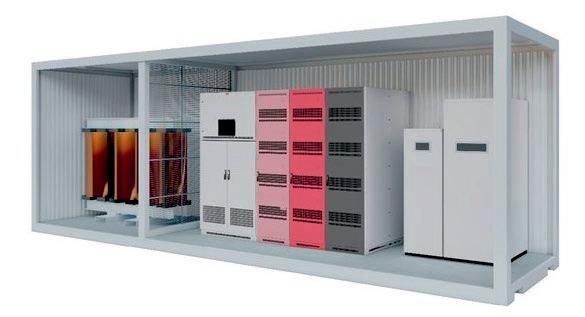
FOLLOWING Japanese technology giant Hitachi’s acquisition of European vehicle-charging specialist ABB on July 1, a newly formed company called Hitachi ABB Power Grids looks set to have Brisbane feature its latest “game-changing” Grid-eMotion Fleet EV charging system for first mass use anywhere, the company confirms.
Designed for large scale e-Mobility, Grid-eMotion Fleet is a full ‘grid-to-plug’ solution for large-scale public transport and commercial fleets, enabling operators to ‘charge more with less’, Hitachi ABB states.
As first reported by www.busnews. com.au two years ago, Brisbane City Council’s Registration of Interest announcement for the new Brisbane Metro bus project was always intended to attract some of the most advanced technology and designs to form its envisaged next-gen bus transport system.
With confirmation in late November 2019, it was spearheaded by a Hess-Volgren-ABB winning bid, and an eventually successful 18 months of ABB and Hitachi JV negotiations sees the latter now with an 80.1 per cent investment in ABB’s Power Grids business.
Under the leadership of Claudio Facchin as CEO and Toshikazu Nishino as executive vice president and chairman, Hitachi ABB Power Grids will expand Hitachi’s energy solutions business globally as a core part of the company’s Social Innovation Business, it states.
As a step-change approach for public transport and commercial operators, Grid-eMotion Fleet ‘smart mobility’ solution enables operators to efficiently scale up their operations and is expected to contribute to sustainable society for millions living in urban areas, the company explains.
HOW IT WORKS
This compact design clusters the entire e-mesh PowerStore charging system in one location, which eases maintenance and saves space at parking slots, Hitachi ABB describes.
It requires a significantly shorter installation period compared to traditional installations, it adds. In addition, the thermally insulated enclosures are modular and therefore available in a range of ratings, capacities and layouts to comply with bespoke customer requirements and industry standards, it says.
As Hitachi ABB explains, the solution comes in standard containers that integrate the grid connection and charging systems all together.
Grid-eMotion Fleet uses DC technology and can connect to any type of power network, removing the complexities of integrating AC-DC chargers into a system, it says. Compared to a conventional connection to the AC grid, the pioneering solution brings a 60 per cent reduction in space required for large-scale EV fleet charging, whilst the depot cabling is reduced by 40 per cent, it confirms. The fast-to-install solution harnesses renewable energy through grid integration, smart mobility, digital energy management system and incorporates insights from data analytics, it states.
Grid-eMotion Fleet leverages Hitachi ABB Power Grids’ smart energy management solution e-mesh EMS to manage and enhance the complete charging infrastructure, calculate bus energy consumption and devise, plan and deliver effective services for passengers, it explains.
Digital analysis monitors the battery life data, route data, traffic simulation and depot control to ensure that efficient power use, energy storage and overnight charging is optimised, it adds.
Above and Below:
This compact design clusters the entire e-mesh PowerStore charging system in one location, which eases maintenance and saves space at parking slots, Hitachi ABB describes.

KINETIC COMPLETES NZ GO BUS ACQUISITION
FOLLOWING customary consents and regulatory approvals, the transaction of New Zealand’s “largest and most dynamic bus operator” Go Bus into the Kinetic mass-transit fold has completed, the company has announced.
In a move that is said to make Kinetic the “region’s largest e-bus operator”, the Australasian public transport entity is signalling an exciting year ahead for bus transit in the region as proactive governments and transport authorities alike embrace innovative new ways to move people, it states.
The Melbourne-headquartered company recently welcomed Go Bus to its growing mass transit platform, which includes world-leading airport transit business SkyBus, urban and regional bus operations Surfside and Sunbus, and Sydney-based bus and coach company Telfords.
With key government contracts to operate urban bus services in Auckland, Hamilton and Christchurch, and as the largest provider of school bus services in New Zealand, along with a luxury coach brand (Johnston’s), Go Bus bolsters Kinetic’s credentials as Australasia’s only dedicated mass transit bus operator across airport, urban, school and charter bus services, it explains.
With an owned-fleet of 2,800 buses, 49 depots and 4,000 people across its Australia and New Zealand operations, co-CEO Michael Sewards says Kinetic is uniquely positioned to drive innovation in bus mass transit across the region.
“We operate in every aspect of bus transport across major cities and regional communities and over 42 years we have worked with a diversity of government and private partners to evolve our services to meet customer travel needs and government policy objectives,” Sewards said.
“We invest heavily in passenger experience with cross-application learning and research behind everything we do from the design of our vehicles to the regularity of services – and we challenge all stakeholders with an interest in the future of bus mass transit to increase their expectation of what bus operators should deliver in this area.”
Below:
Under the Go Bus brand, Kinetic will operate a new fleet of electric buses for Auckland Transport.

Building Australian buses since 1991
Celebrating our 30th Anniversary, BCI offer operators an extensive range of vehicles, including the new designed Citirider urban bus, our Classmaster & Cruiser school buses, the innovative Zero Emissions low floor and a stock of Euro 6 Mercedes-Benz chassis with the BCI multi-purposed Body.

www.bcibus.com.au Sales Enquiries: 1300 289 224
SAFETY FOCUS FOR DAIMLER EUROPE
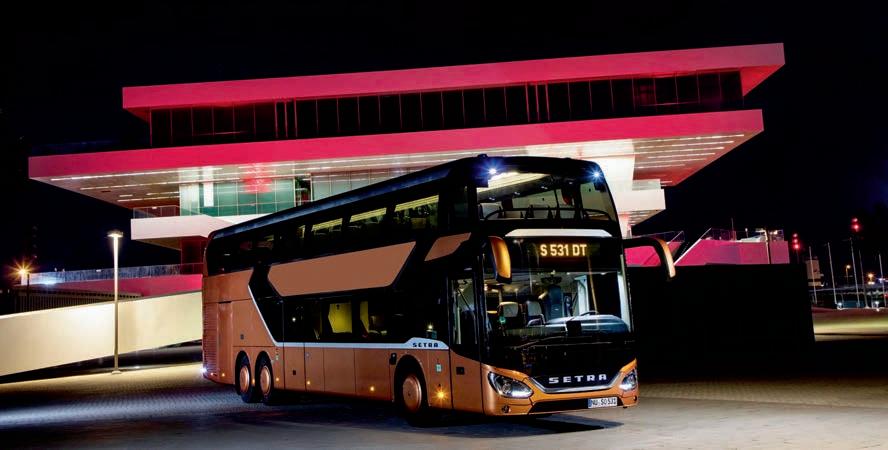
A RECENT LIFTING of a driving ban for German bus companies during the coronavirus pandemic has emboldened Daimler’s push for enhanced driver and passenger safety – with a “high level of fresh air” and “space-enhancing seating variants” - more so now firmly in focus, the company has announced.
According to Daimler Buses, with the market for bus travel reviving again in some segments, it is ‘guaranteeing’ travel on a Mercedes-Benz or Setra bus will afford “the highest possible level of safety with excellent comfort”.
Head of Daimler Buses Till Oberwörder says he strives to keep things that way.
“The safety of passengers and drivers in our touring coaches is top priority for us. That is why we are offering our customers numerous retrofit solutions to protect against infection for our Mercedes-Benz and Setra buses,” Oberwörder explained.
“By continuously further developing our vehicles with regard to safety and climate comfort, we are doing everything to ensure that passengers and drivers always arrive safely at their destination and in the best of health.”
FRESHER AIR PUSH
In a Mercedes-Benz or Setra touring coach, fully automatic integral air conditioning or fully-functional roof-mounted air conditioning provide for an evenly distributed temperature – from the first to the last row of seats, Daimler states.
The vehicles have powerful climate control systems with high airflow, which develop their maximum efficiency when the doors and windows are closed, it says. Depending on the air conditioning system, a complete change of air under a minute is possible, it claims.
Depending on the type of bus, the external temperature and the type of air conditioning, a 100 per cent level of fresh air in the passenger compartment is possible, it confirms.
For vehicles with passive ventilation elements, such as hinged windows and roof hatches, ventilation is via manual operation of these components, it adds. Longer opening times of doors on regular-service buses at bus stops, for example, can also have a positive effect on the exchange of fresh air, it states.
FILTER REPLACEMENT
Setra ComfortClass and Mercedes-Benz Tourismo buses are available with roof-mounted air conditioning. The low-maintenance and low-consumption systems are equipped with a high-performance condenser blower and enlarged air filters, which help remove dust and should be replaced every six months, Daimler advises.
With the three output categories – 32kW, 35kW and 39kW – the coaches provide the right climate control for every area of operation and each vehicle length, the company explains.
ADDITIONAL MEASURES
In order to give passengers and drivers even better protection in the further course of the Covid-19 pandemic, Daimler Buses offers retrofit solutions for driver protection screens made of glass and polycarbonate plastic, it says.
They are already available for the Mercedes-Benz Citaro and for the Setra LE business low-entry inter-city bus. Preparation work for their installation in touring coaches is “picking up pace”, it says.
Further measures include the optimisation of air conditioning filters and the definition of measures ensuring optimum ventilation of the vehicle when it is stationary.
The company’s engineers are working at full speed to increase the level of fresh air even further, and further reduce the concentration of critical air components in buses, which in future can also be equipped with sanitiser dispensers, Daimler outlines.
GAME OF THRONES
Besides its usual extensive passive and active safety features – such as active brake assist 4 (ABA 4), the new sideguard assist (SGA), autonomous intelligent cruise control (AICC), the driver-focussed attention assist (AtAs) and front collision guard (FCG) – the coaches include seats with comfortable seat backs and sprung seat cushions, low-vibration armrests, and individually adjustable luxury head restraints together with intuitive operation (with integrated seat belts and a defined impact zone).
BUS TRAVEL IDEAL
Citing the Association of German Bus Operators (bdo), it explains that: “… travelling by bus is not only comfortable, but also a safe and clean travel option. This is confirmed by studies from the TÜV testing organisation, as well as in figures from the German Federal Statistics Office.”
“TÜV continues to confirm this year after year: in Germany, coaches and buses are the safest means of transport,” says a declaration by the bdo, Daimler points out.
VOLVO BUS AUSTRALIA SEES STAFF CHANGES
IN CONTINUING to focus and adapt to the ‘changing nature’ of the Australian Bus and Coach industry, Volvo Bus Australia has made a slew of internal staff and role changes, the organisation has announced recently.
With previous roles at Volvo Bus that included regional service manager, regional sales manager and, most recently, working in the major accounts team previously headed by Robyn Thomson, Tony Lowrey is now senior manager, major accounts, effective July 1, 2020.
With a primary focus on major accounts in New South Wales and Victoria, Lowrey will be responsible for the management of large operators – both government and private, Volvo confirms.
Effective September 1, Christina Cortese will assume the role of senior manager, major accounts, with a primary focus on Western Australia, South Australia, the ACT and Queensland.
Cortese will be responsible for the management of large governmental and private operators and will also assume the market responsibility for New Zealand, working alongside Volvo Bus distributor MTD.
Meanwhile, having worked in the UD Trucks & Volvo real estate business control teams since April 2019, Svetlana Guerin is now in the Volvo Buses’ business control and finance team, while Ali Alali is now regional service manager, NSW (Metro). Alali has spent the past two years as RSM for Queensland and Northern Territory, Volvo explains.
Australian bus industry stalwart David Woodward will resume his role as national competency manager full time, with a focus on NSW face-to-face training, and performing training remotely using Volvo Buses new ‘Go To Training Portal’, Volvo says.
Whilst Woodward officially commenced the newly created role on 1 March, the original training calendar was disrupted due to Covid-19, and Woodward has instead focused his time on the continued support of the Metro Sydney customers, the company explains.
Finally, Volvo Bus Australia welcomed Kevin Benat to its team on August 1 as regional service manager, Queensland and Northern Territory.
With 14 years of mechanic experience in the heavy commercial vehicle trade and working in international markets, Benat has gained extensive industry experience and developed vital relationships with key stakeholders, Volvo states.

Above: Tony Lowrey is now senior manager, major accounts.






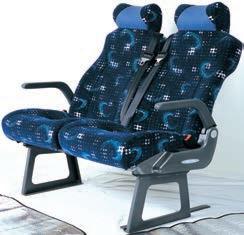

NUMBERS YOU CAN TRUST 3,540


AUDITED CIRCULATION*









ARE YOU MAXIMISING YOUR AUDIENCE REACH?
AUSTRALIAN BUS & COACH distributes 3,540 copies every month based on the auditing period OCTOBER 2018-MARCH 2019.
These fi gures are independently audited by the Circulations Audit Board (CAB). Bauer Media proudly publishes CAB audit fi gures for Australasian Transport News (ATN), Australasian Bus & Coach (ABC) and Owner Driver magazines.
QBIC CONFERENCE SEASON STARTABC AUSTRALASIAN BUS & COACH ISSUE 379 March 2019 $5.95 inc GST ABC AUSTRALASIAN BUS & COACH ISSUE 380 April 2019$5.95inc GST BUS & COACH April 2019$5.95inc GST VICBUS FLEET UPGRADES QBIC2019 BIC EVENTS KICK OFF! QLD’69 LEYLAND PANTHER UNVEILED BUSVIC 75TH ANNIVERSARY EXHIBITION
RETRO-COOL CLIPPER THAT’S QUEEN OF THE MOUNTAINSSTEALINGBEAUTYpictorial: qbic, 2019 profile: omnibus, wa guide: seating buyers’ guide STARPOWER MB’s OC 500RF 2-AXLE CHASSIS GETS THE IRIZAR i6S TREATMENT ABC 380.als - Base Edition 1
+30,492
WEBSITE VISITORS qbic, 2019
EVERY MONTH^
tech: volvo autonomous interview: henrik henriksson guide: 2019 parts & accessories henrik henriksson guide: 2019 parts & accessories volvo autonomous interview: ^Total Sessions, Google Analytics, March 2019
15/4/19 3:43 pm
18/3/19 3:14 pm
Bauer Media Group. Everywhere you need to be.
ABC 379.als - Base Edition 1
BUSTECH APPOINTS AXALTA AS KEY SUPPLIER
AUSTRALIAN body builder Bustech, now part of Australian Bus Corporation, has announced a strategic partnership with leading paint and coatings supplier Axalta.
This strategic partnership with Bustech – supplier of government bus and public transport private sector passenger vehicles – involves more than just the delivery of paint, Axalta states. The companies will work closely together to develop an innovative product portfolio and paint processes to ensure exceptional quality and timely delivery, it says.
“As a market leader in Australia, Axalta fits well with the requirements of Bustech, to be a partner that is tuned into delivering quality products and solutions to meet customer requirements,” said Steven Brett, managing director, Axalta Australia and New Zealand.
“With more than 150 years of expertise in the paint and coatings industry, we can leverage our global experience to deliver local solutions to the Bustech team and its customers in Australia.”
Bustech, based at Burleigh Heads on Queensland’s Gold Coast, is Australia’s largest privately-owned bus manufacturer, it states. Designing, engineering and manufacturing chassis and bodies for mass passenger vehicles, 95 per cent of all parts and components are sourced from local Australian suppliers, it explains.
Bustech is owned by the Australian Bus Corporation, which also owns Precision Buses based in Edinburgh Parks, South Australia. Through this partnership Axalta will also work with Precision Buses in its Adelaide facility replicating the model it has with Bustech, the company explains.
“Axalta’s experience in the commercial vehicle industry gives us great confidence that they will be able to provide the necessary products and support as we continue to build on the strong platform we have, positioning ourselves for future product development with our strategic partners,” said Bustech CEO Thinus Steyn.
Above:
Through this partnership Axalta will also work with Precision Buses in its Adelaide facility replicating the model it has with Bustech, the company explains.



Workhorse Collision Repairs and Fleet Maintenance
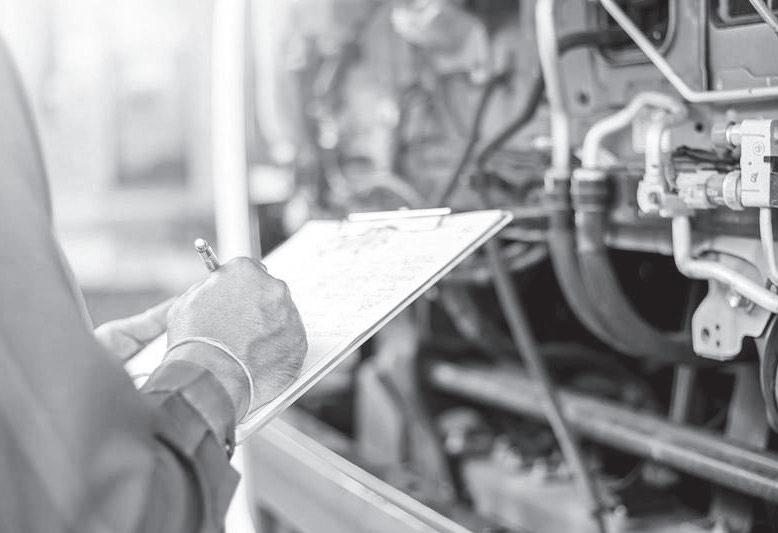
02 8882-4700
workhorsetrucks.com.au
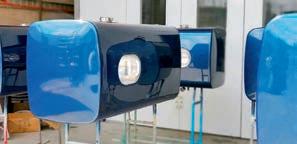


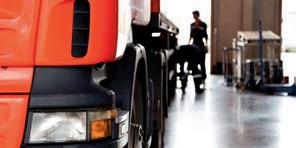
CNH INDUSTRIAL AND FIAT-CHRYSLER FACE DIESEL-EMISSIONS PROBE
The diesel emissions scandal that plagued Volkswagen (VW) for much of the last decade looks like causing a world of pain for Iveco parent CNH Industrial (CNHI), along with Fiat-Chrysler Automobile (FCA), according to European and local media reports.
Alleged use of ‘defeat devices’ on Iveco, Fiat, Alfa Romeo and Jeep engines is the focus of raids in three European countries.
Reports from Germany put Fiat and Iveco commercial vehicle engines in the same ‘Dieselgate’ spotlight.
“CNH Industrial confirms that a number of the Group’s offices in Europe have been visited by investigators in the context of a request for assistance by magistrates in Germany,” the global firm said in a statement.
“The company immediately made itself available to the officials, providing its full cooperation.
“CNH Industrial is examining the relevant documentation in order to properly address any requests that the magistrates may have.”
Five years ago, when VW was the focus of legal action over its diesel defeat program, the Australian Competition and Consumer Commission (ACCC) led the domestic regulatory reaction.
“This enforcement investigation is a priority for the ACCC,” chairman Rod Sims said at the time.
“We are very concerned about the potential consumer and competition detriment from this alleged conduct.
“Using defeat devices is specifically prohibited under the Australian Design Rules, which are picked up as Australian Consumer Law (ACL) mandatory safety standards.”
RAIDING FOR EVIDENCE
An ACCC spokesperson told ABC’s sister magazine ATN that it “cannot comment on any potential investigations”.
Without naming the two vehicle giants controlled ultimately by the Agnelli family, the European Union Agency for Criminal Justice Cooperation (Eurojust) says investigators from Germany, Italy and Switzerland are searching three commercial properties, “...of a company located in Baden-Württemberg and Hesse in Germany, as well as in three locations in Italy’s Piedmont region and one location in the Swiss canton of Thurgau”.
The raids seek to gather evidence on ‘defeat devices’ used to cheat diesel emissions testing, the marketing of vehicles and individual responsibility to the alleged actions.
In addition, “UK authorities have ordered two companies in London to produce relevant documents”.
“Judicial authorities in Germany are conducting an in-depth fraud investigation on the use of more than 200,000 diesel ‘defeat devices’ in cars produced by an international automotive group and international commercial vehicle manufacturer, as well as their subsidiaries,” Eurojust states.
“The investigation is focused on the suspicion that diesel engines installed in several car models sold by the company would be equipped with an illegal defeat device.”
The organisation explains that whereas the vehicles meet the emissions standards under test conditions, the defeat device allegedly effectively shuts down the emissions control system in real drive conditions.
“Such defeat devices are illegal according to the European Union regulations in place,” it says.
“Vehicles with defeat devices are not approved for road usage in the EU and consumers with such devices installed in their cars face possible driving bans. In Germany, more than 200,000 vehicles are subject to the investigation, including larger vehicles, such as camper vans.
“The Prosecutor Office of Turin, Italy, is also investigating the crime of fraud in the framework of a parallel proceeding linked to the same case.”
ABC magazine has contacted Iveco Australia for comment as to whether bus engines are included.
Pictured:
The raids seek to gather evidence on ‘defeat devices’ used to cheat diesel emissions testing, the marketing of vehicles and individual responsibility to the alleged actions.


MORE MANAGEMENT CHANGES AT DAIMLER

THE NEW HEAD of production Daimler Buses – and managing director production of EvoBus GmbH – is Michael Klein, as of August 1, the company has announced.
Previously head of customer services & parts (CSP) Daimler Buses, 56-year-old Klein replaces Dr. Marcus Nicolai, who decided to leave the company after 23 years of service, Daimler confirms.
With this development, the management of the CSP business Daimler Buses will be taken over by Bernd Mack, who was previously head of international key account management and used vehicles in sales at Daimler Buses, it explains.
SOLID PATH
“With Michael Klein a highly competent manager with a strategic mindset is taking over the lead of the global production activities of Daimler Buses,” said Till Oberwörder, head of Daimler Buses.
“In recent years he has managed the CSP business with absolute success, and in so doing made an important contribution to the business performance of Daimler Buses.
“His success is largely due to his entrepreneurial mindset and leadership culture,” Oberwörder added.
In further changes, after 35 years of service with Daimler, stalwart Ulrich Bastert will retire on September 30, 2020, to be replaced by Mirko Sgodda as the new head of marketing, sales and customer services at Daimler Buses on October 1, the company confirms.
Sgodda, 46 years old – and currently head of compliance trucks & buses – began his Daimler career in 2002 and has worked in various sales functions across all Group brands since then.
Among many initiatives, he developed sales network strategies and successfully implemented commercial vehicle-specific product and service portfolios, Daimler says. From 2010 to 2013, Sgodda was responsible for sales network development at Daimler Central & Eastern Europe, Africa and Asia (DCAA) and was responsible for the market management of all group brands in more than 120 markets, it explains.
In 2013 he took over the ‘Business Development’ area at Mercedes-Benz Retail in Berlin as a member of the executive board. He has been the responsible compliance officer for the Daimler Trucks & Buses business units in the integrity & legal division in Stuttgart since 2017, the company states.
Below: Michael Klein has taken on the roles of head of production Daimler Buses and managing director production of EvoBus GmbH.

THE WOT!?!

STAY IN YOUR LANE
There’s not looking before crossing the road, but this takes a whole new level of biscuit. New York’s Metropolitan Transportation Authority (MTA) displayed that city’s famous blunt attitude recently after a wedding party blocked traffic in Midtown to take photos. “ARE YOU A BUS?” it bellowed at them on Twitter after a TikTok of the road-hogging group surfaced online. Answers on a postcard if you will.
LIGHTBULB MOMENT
Just next door in New Jersey, NJ Transit has begun testing the use of ultraviolet-c (UVC) to disinfect its bus fleet from viruses such as Covid-19. Working with Rutgers University’s Center for Advanced Infrastructure and Transportation, the study will include electronically mapping the interior of different bus models to determine the best placement for the UVC source. It points out that passengers themselves will not be irradiated, in case bus drivers were getting any ideas.

POLES APART
Hot on the heels of Dutch city Utrecht’s beefriendly bus stops, Polish capital Warsaw’s first environmentally friendly bus stop is now up and running, sporting a fetching sedum roof and anti-bird-crash glass. This is the first of 21 green stops that will be built by the end of the year. With the claim that the lawn roof could lower temperatures inside the bus stop, maybe we should stick sedum on everything? Might need to be 10m deep, mind you, over here…





